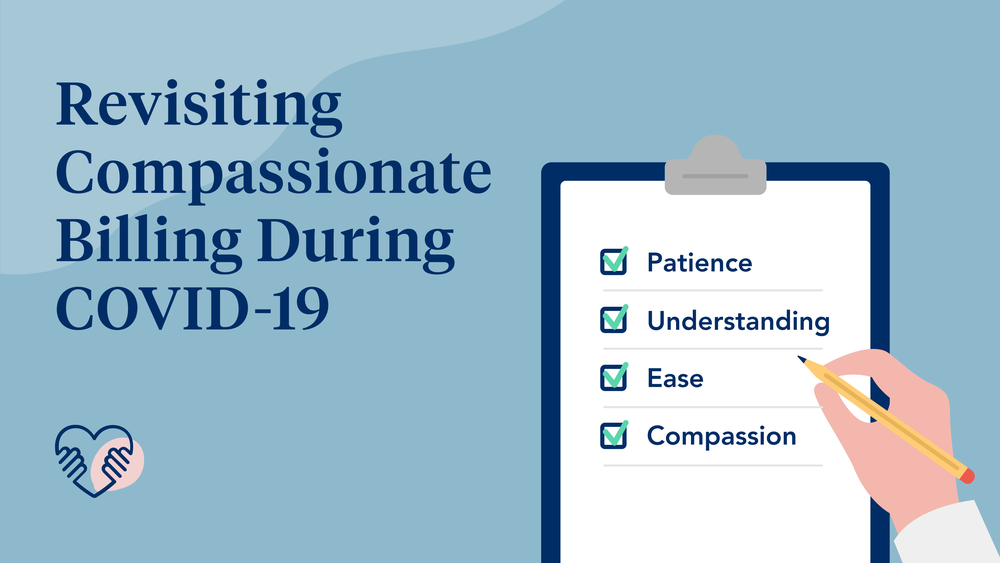Four years ago, we founded Cedar with the belief that we could meaningfully improve the patient financial experience. And 2020 has made our mission more important than ever.
Recent news of safe and effective COVID-19 vaccines in an unprecedented turnaround time shows an end in sight, allowing us to breathe a collective sigh of relief. That said, this news comes during the most challenging time we’ve yet experienced during the pandemic. COVID-19 cases are spiking across the U.S., leading to dire warnings about hospital overcapacity, lockdown expansion and further economic consequences. According to our recent 2020 Healthcare Consumer Experience Study, 84% of patients are worried about paying their healthcare costs in the next year.
This also has significant impact on healthcare providers who can expect short term financial fallout. Along with broad patient inability to pay bills due to financial hardship, hospitals are postponing elective procedures to free up resources, eliminating a major revenue source.
A critical part of Cedar’s underlying mission is to help our clients best serve patients. To that end, we’ve done a lot of thinking about the current situation and offer the below advice to provider friends on the front lines of the response effort.

Embrace understanding
The initial spring 2020 outbreak provided us with insight upon which providers can continue to draw from. At that time, we conducted user research with U.S. healthcare consumers to better understand billing challenges that emerged with COVID-19. We learned that many patients are facing financial uncertainty and hardship; although their willingness to pay remains high, their ability to do so has gone down and they’re forced to make tough calls on which bills to pay in a given month.
Consequently, they’re more stressed than ever and need an empathic, human and understanding response from providers when engaging with billing. This is an opportunity for providers to embrace compassionate billing practices that generate loyalty, serving as a win-win for both patients and providers.
Patience is a virtue
In the current environment, many patients need more time to deal with healthcare financial obligations. There are several ways providers can help, such as:
- Offer flexible payment plan options: Our data shows that the size of monthly payments toward a plan doesn’t impact collection rate, suggesting patients choose amounts that fit their monthly budget. By offering more payment plan options, patients will likely make this optimization.
- Temporarily extend billing cycles: Some patients may be out of work or need to prioritize other living expenses. For example, extending billing cycles from 120 to 150 days can make a big difference for some patients, and result in fewer accounts sent to collections.
When patients are ready, be there for them
Leading consumer companies have conditioned patients to expect more from digital experiences. So when patients are ready to pay their bills, it’s best to eliminate any wait or friction to pay by making billing experiences fast, simple and flawless. There are a few best practices that providers can employ:
- Encourage digital engagement across every channel: Thoughtful patient bill reminders using all available digital communication channels (text, email, etc.) make it easy for patients to self-serve online. Even traditional paper-based statements can drive digital engagement; since Cedar rolled out QR codes on statements in January, usage has increased by 2200%.
- Celebrate and reinforce prompt payment behavior: Prompt-pay discounts can help patients act early by making care costs more affordable. We’ve also seen that discounts offered to patients as soon as bills drop are more likely to accelerate payment (as opposed to offering them mid-billing cycle).
- Automate rote contact center workflows: It’s likely contact centers will be inundated with inbound calls as patients seek billing help. Enabling self-service for quick tasks like payment plan setup and updating insurance can help patients resolve bills more quickly.
Continue to demonstrate compassion beyond the treatment
As I mentioned in our open letter at the onset of the pandemic, kindness goes a long way during emergencies. Patients understand that healthcare is a business, but treating them as humans rather than transactions is crucial to cultivating long-term provider loyalty—even more so during a crisis.
Fortunately, there are impactful ways that providers can empathically engage while helping patients productively problem solve:
- Remind patients that their care and well-being is the top priority in online portals and on monthly statements: This small but powerful gesture is a potential opportunity to educate about flexible payment options while providing helpful COVID-19 resources.
- Make sure customer service representatives (CSRs) are going the extra mile to demonstrate kindness: Against the backdrop of what may be a very stressful and scary situation, a kind word or two can ease burdens that patients may be under.
- Enable CSRs to grant patients more relaxed payment plan terms and generous discounts: As alluded to above, giving patients some extra financial breathing room during this period speaks even louder than words, demonstrating a firm commitment to helping them get through this tough period.
It pays to care
As we band together to get through this (hopefully last) immensely challenging wave of the pandemic, it’s important to stay vigilant and care for each other in every way possible. Healthcare providers continue to have a unique opportunity to help people get through what may be some of the hardest moments in their lives.
We at Cedar are here to help in any way we can, because we continue to believe it pays to care.

Florian Otto is co-founder and CEO of Cedar. Prior to founding Cedar, Florian was an executive at Zocdoc where he drove the commercial adoption of the platform by health systems. Previously, Florian founded a daily deal company in Brazil (ClubeUrbano) that was sold to Groupon. Florian holds an M.D., D.D.S. and Ph.D. from the University of Freiburg, Germany.



